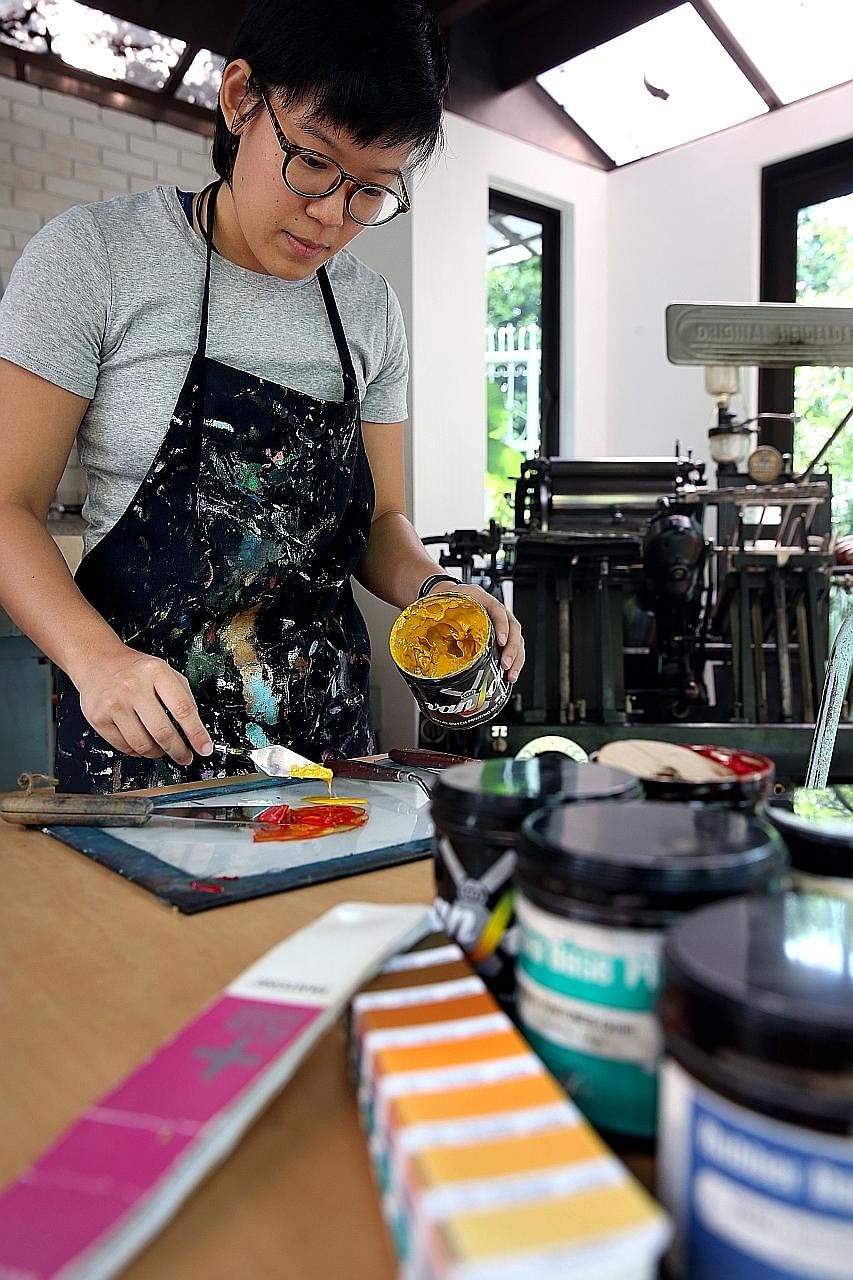Singapore ranks at or close to the top of virtually every global ranking scheme relating to "wired" cities or countries, most "digitally savvy" populations, most technologically intensive spaces and so on.
The city-state's strong position on such indices is not totally surprising, given that the Government has supported digital culture and the creation of a digital society in many ways over the years, most recently with the reorganisation of the longstanding Smart Nation efforts into the omnibus Smart Nation and Digital Government Office, placed directly under the Prime Minister's Office.
In the recently released Report of the Committee on the Future Economy, building "strong digital capabilities" was identified as one of seven key strategies going forward. Clearly, digitalisation isn't going away anytime soon in Singapore.
That said, future digital initiatives may find increased doubts, scattered resistance, even outright repudiation from some Singaporeans, especially from a young, affluent and highly educated population.
Such responses are the subject of a recent book titled The Revenge Of Analog: Real Things And Why They Matter by Canadian business journalist David Sax. In this provocative study, published late last year, Mr Sax provides strong evidence that in numerous advanced economies around the world - the United States, Canada, Western Europe, Japan, Taiwan, and South Korea - growing numbers of consumers are questioning and often rejecting digital products, digital thinking, and, most of all, digital solutions to problems of everyday life. According to him, they've had enough, and are increasingly dissatisfied with cold, icy binaries, and are unwilling to allow their lives to be reduced by coders to "endless combinations" of 1s and 0s, regardless of whatever "efficiencies" they may forgo as a result.
Thus, the growth in sales in recent years of supposedly "obsolete" technologies and products ranging from vinyl records - 12 million vinyl LPs were sold in the US alone in 2015 - and Polaroid cameras and film photography, analogue watches, fountain pens, expensive pencils, print magazines, letterpress cards, leather notebooks, to, yes, even books! Take that, Kindles and Nooks.

The phenomenal success - and cachet - of Moleskin luxury notebooks and journals, which have become de rigueur among high-level tech execs in Silicon Valley, constitutes a wicked case in point.
Why the revenge of analogue, as it were?
For a number of reasons, Mr Sax claims. For one thing, many people believe that digital products, thinking and solutions, on balance, are not necessarily superior to earlier technologies. For example, listeners often prefer the warmer sound of vinyl recordings, and many bona fide audiophiles contend that, in collapsing sound waves into 1s and 0s, digitalisation drains music of richness and colour. And educators and students alike overwhelmingly prefer simple, erasable whiteboards to "smart" boards, digital bells and whistles notwithstanding.
There is also a yearning among some for richer, more tactile experiences - experiences that embrace all of the senses - rather than settling for the type that are possible by sitting rather inertly in front of a screen.
Thus, the surging interest in more "human-centric" processes and products, however imperfect. A building sketch done by hand by an architect working with a pencil will never achieve the technical precision of computer-assisted design, but it might allow for more idiosyncratic lines and creative shapes and forms.
Developing film by hand can be messy and time-consuming, but the varying results can be brilliant and are seldom bland. And despite impressive strides in human-computer interactions, many, if not most, of us still prefer interacting with those of our own species rather than with machines.
Another reason for analogue's rebirth has to do with the commodification of the digital. When virtually everyone has a smartphone doubling as a camera - I was recently in Yangon and smartphone penetration is significant even there - it's time for the cognoscenti to dust off their Polaroids.
Similarly, with video games generating more revenue than motion pictures, numerous "independent-minded" consumers have decided to break with the pack by playing board - and tabletop - games again, whether old ones such as Monopoly or newer ones such as Settlers Of Catan, which has sold more than 23 million sets since it first hit the market in Germany in 1995.
As the above considerations may suggest by now, part of the rejection of the digital springs from an attempt by hipsters and cultural snobs to differentiate themselves from the masses, who have been "seduced" by digital products.
Going analogue - Mr Sax uses the term broadly to include anything not connected to the Internet, not employing software, or not accessible via a computer - allows people to set themselves apart.
As such, analogue becomes a cultural marker, suggestive of refinement and sophistication, a source of cultural capital, social positioning, and "distinction", in the sense that French theorist Pierre Bourdieu famously employed the term.
So what does all of this have to do with Singapore? Maybe nothing, but if recent developments in other developed parts of Asia are at all indicative, Singapore will see more of these analogue options.
The Polaroid craze in Singapore was hot for several years, even among teens; Moleskin diaries are already commonplace, even spawning a crop of local leather notebook makers; and board games cafes are gaining in popularity.
All that is entirely predictable, as affluent Singaporeans at once attempt to differentiate themselves from the now commodified world of the digirati and perhaps to establish a greater sense of human connections in a land increasingly dominated by 1s and 0s.
•Professor Peter A. Coclanis is Albert R. Newsome distinguished professor of history and director of the Global Research Institute at the University of North Carolina-Chapel Hill. He travels to Singapore often and in 2005 was Raffles professor of history at the National University of Singapore.

